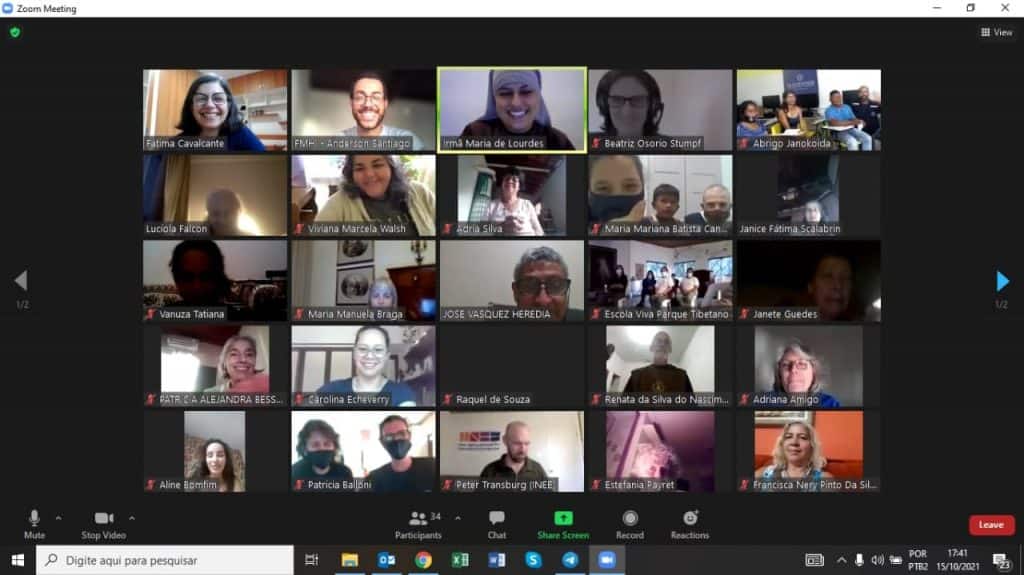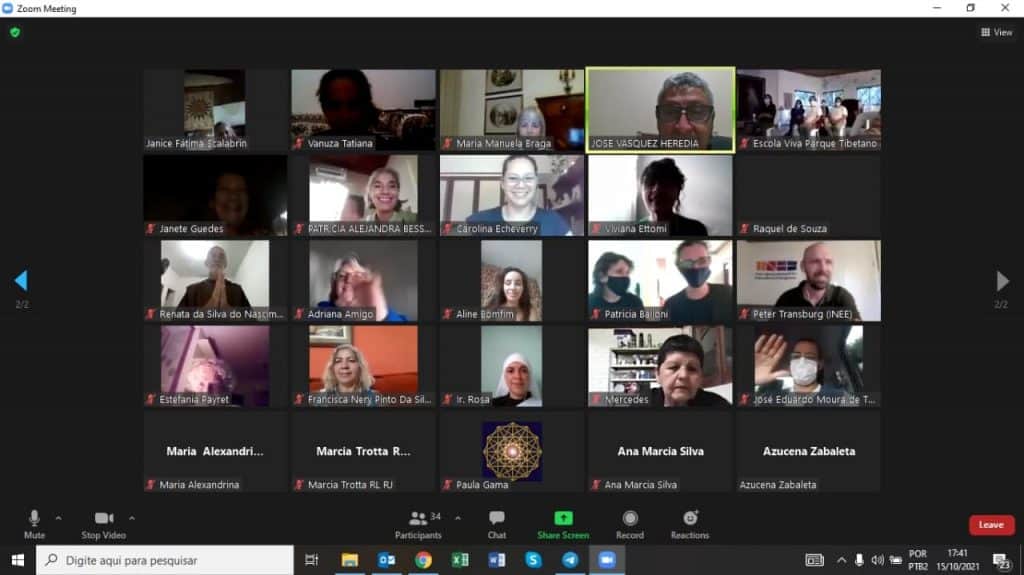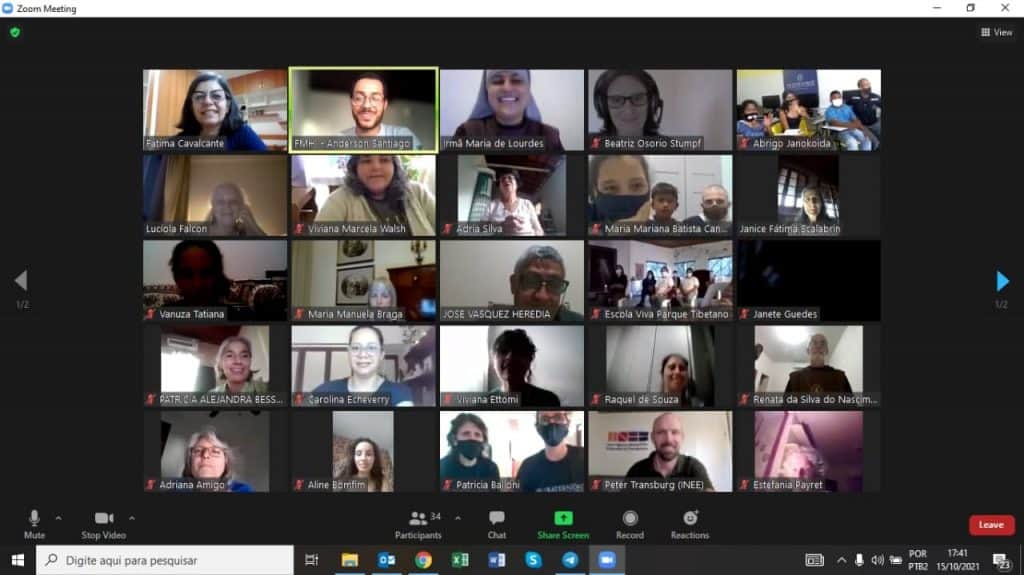Through an initiative of the INEE – InterinstitutionalNetwork for Education in Emergency Situations, and with the leadership of the Fraternity – International Humanitarian Missions (FIHM), the “Meet-up INEE Brazil” took place on October 15, with the subject: “Challenges, good practices and perspectives for the local integration of immigrant and refugee children, adolescents and young people.”

Sister Maria de Lourdes, monk of the Grace Mercy Order, and responsible for carrying out the event, considered that “it was a very important meeting, because today in Brazil, we face a very challenging educational situation in relation to the Venezuelan immigration.”
The meeting, the objective of which was to open space for a relationship between the participants so they could share ideas and experiences on the subject, had 52 people participating.
Among the participants were missionaries of the Fraternity – International Missions (FIHM), members of the Light-Network, members of INEE, and guests invited from partner institutions, such as Stela Damas, Director of CEFORR – State Center for Training Professionals in Education of Roraima, who considered that “discussion is very important for all of us who are experiencing this atypical moment, in which we have no previous precedent of how to give proper guidance.”

Among the challenges faced for the correct reception of this fragile population are the differences in language, culture and learning, according to what the Sister explains, “the welcoming process and integration of the Venezuelan children, adolescents and young people is challenging both for the immigrant and refugee families and the schools, which need to go through a process of adaptation, sensitization, and preparation for receiving children who speak another language, who have different customs.”
To take on all these challenges requires a uniting of efforts and the establishment of partnerships, as Stela pointed out, “we were able to gain a general overview of which the institutions are and how these institutions are taking action in this process.” And she concludes: “our participation was very positive, so we can increasingly strengthen this network of support and protection of the immigrant children and adolescents.”
At a time when the humanitarian crisis is mounting, while the world is experiencing the challenge of a pandemic, to strengthen relationships and expand the spaces for discussion contributes a great deal to the maturing of all those involved, as Sister Maria de Lourdes summarizes: “These meetings serve as spaces where we create the possibility for dialogues that help us think of ways to support both the families and the education professionals who are facing these challenges of educating at this time of the immigration and the pandemic.”






